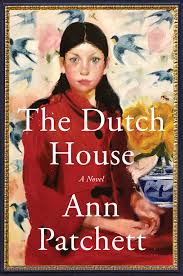Chapter 17
byChapter 17 takes an intimate look at the tangled web of emotions that accompany familial relationships, particularly in the wake of abandonment, reconciliation, and the slow, uncertain process of healing. The story centers on Danny and his sister Maeve as they confront a deeply personal reckoning—the unexpected return of their mother after years of absence. The reunion takes place in a hospital room, where Maeve is recovering from illness, a setting that serves as both a reminder of fragility and an opportunity for reflection. As their mother re-enters their lives, the atmosphere is charged with both longing and resentment. For Maeve, this moment holds the potential for healing, a long-awaited chance to mend the wounds of the past and reconnect with the woman who once walked away. For Danny, however, her return is an unwelcome intrusion, stirring up years of buried anger and forcing him to confront emotions he had long suppressed.
Through vivid recollections, the chapter paints a detailed picture of the siblings’ childhood, shaped by both scarcity and resilience. The home they grew up in was humble, filled with only the essentials, yet it held the echoes of their shared struggles and small joys. Maeve and Danny learned to navigate financial hardship with ingenuity, finding happiness in the simplest of things. Their mother’s presence in these memories is complicated—once a source of comfort and warmth, she is also the figure who abandoned them when they needed her most. Maeve chooses to remember the tenderness, the bedtime stories, the small but meaningful gestures of love, while Danny cannot ignore the void she left behind. The contrast between their perspectives underscores the complexities of human memory—how the same past can be experienced and interpreted in vastly different ways.
As the story unfolds, the tension between Danny and Maeve becomes palpable, reflecting their opposing approaches to processing pain and loss. Maeve, ever the nurturer, sees her mother’s return as a gift, a final opportunity to rebuild what was broken. She is willing to extend forgiveness, not because she has forgotten, but because she believes that healing is more valuable than resentment. Danny, on the other hand, remains deeply wounded, unwilling to let go of the bitterness that has defined his view of their mother for so long. He struggles to understand Maeve’s willingness to welcome her back, questioning whether it is truly possible to forgive someone who never asked for redemption. Their exchange forces them to confront difficult questions: Is forgiveness something that must be earned, or is it an act of personal liberation? Can a person who has inflicted so much pain ever fully be reaccepted into the family they left behind?
The chapter skillfully navigates these questions, offering no easy answers but instead allowing the raw emotions of its characters to unfold organically. As Maeve and Danny wrestle with their feelings, their conversations shift between quiet reminiscence and moments of unfiltered honesty. The presence of their mother acts as a catalyst, bringing to the surface not only past wounds but also the enduring bond between the siblings. Though they stand on opposite sides of the divide, their love for each other remains evident, serving as a testament to the unbreakable nature of their connection. The Dutch House, their childhood home, looms in the background as a silent witness to their shared history, embodying both the pain of their mother’s absence and the resilience that carried them forward.
In its conclusion, the chapter leaves the reader with a poignant meditation on the nature of family, love, and the choices that define us. It acknowledges that while the past cannot be rewritten, it can be reinterpreted, reshaped by the willingness—or refusal—to forgive. Maeve and Danny’s journey is not just about their mother’s return, but about the lifelong process of understanding how deeply our past informs our present. As they stand at the crossroads of acceptance and rejection, the reader is left to ponder the weight of old wounds and the possibility of healing, even when reconciliation seems impossible.


